
Fernando JoséMendes Rosas is a Portuguese historian,professor and politician,being one of the founders of the Left Bloc.

Álvaro Barreirinhas Cunhal was a Portuguese communist revolutionary and politician. He was one of the major opponents of the dictatorial regime of the Estado Novo. He served as secretary-general of the Portuguese Communist Party (PCP) from 1961 to 1992.
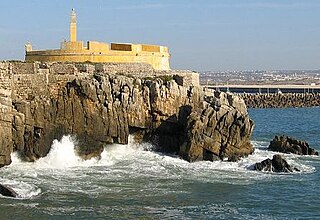
The Peniche Fortress is located in the municipality of Peniche in Leiria District,Portugal. Built on the site of the former Castle of Atouguia da Baleia,of which only a few vestiges remain,initial construction took place in 1557 and 1558 but there have been numerous subsequent modifications. Its defensive walls surround an area of two hectares,divided into upper and lower parts. The fortress has served a number of functions including that of a political prison during the authoritarian Estado Novo regime.
The Fort of King Luís I,also referred to as the Fort of Caxias and the Fort-prison of Caxias,is located in the parish of Caxias,in the municipality of Oeiras in the Lisbon district of Portugal. It presently functions as a prison.

Virgínia Moura (1915-1998) was a Portuguese anti-government activist and feminist,opposed to the authoritarian regime known as the Estado Novo. As a member of the Communist Party,she was arrested on 16 occasions for her activities. She was the second Portuguese woman to qualify as a civil engineer.

Isaura Borges Coelho,was a Portuguese nurse and activist. She is known for her efforts in favour of nurses' rights,for which she was imprisoned and tortured by the Portuguese dictatorship's political police.

Maria Luísa Costa Dias (1916–1975),was a Portuguese medical doctor and communist activist in opposition to the authoritarian Estado Novo government.

Pedro dos Santos Soares was a Portuguese communist activist who campaigned against the authoritarian Estado Novo government and was arrested on numerous occasions,spending about twelve years in political prisons.
Albina Fernandes was an active member of the Portuguese Communist Party and a political prisoner during the Estado Novo era.
Aida Paula (1918-1993) was a Portuguese communist who opposed the authoritarian Estado Novo government,was arrested on three occasions,and spent many years as a political prisoner.

Fernanda de Paiva Tomás was a member of the Portuguese Communist Party who spent close to a decade as a political prisoner,from 1961 to 1970,under the authoritarian Estado Novo regime.
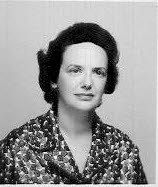
Stella Piteira Santos (1917-2009) was a Portuguese communist who opposed the Estado Novo dictatorship. Arrested and tortured in Lisbon,she subsequently moved to Algeria,from where she helped broadcast programmes of Rádio Voz da Liberdade to Portugal.
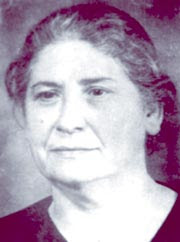
Maria dos Santos Machado was a teacher and a Communist Party activist against the authoritarian Estado Novo. She was imprisoned on four occasions between 1936 and her death in 1958.

The Portuguese general strike of 1934 took place on 18 January throughout the whole country,although in an ill-coordinated way. Strikes and demonstrations were held in the capital Lisbon and in Porto,Coimbra,Braga,Leiria,Almada,Anadia,Setúbal,Silves,Sines,and many other locations,and these were sometimes accompanied by sabotage. Activities were most dramatic in the glass-making town of Marinha Grande,which is why the day is sometimes known as the day of the "Marinha Grande revolt".

Maria Alda Nogueira (1923–1988) was a communist and feminist activist who opposed Portugal's Estado Novo regime and spent nine years as a political prisoner. After the overthrow of the Estado Novo she became a parliamentary deputy,serving in the National Assembly for a decade.
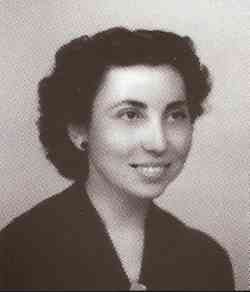
Georgette Ferreira was a member of the Central Committee of the Portuguese Communist Party (PCP) from 1950 to 1988 who opposed the Estado Novo regime and was the first woman to escape from an Estado Novo political prison. She was a Deputy in the Constituent Assembly of Portugal in 1975 and 1976 and a Deputy in the Assembly of the Republic from 1976 to 1988,on all occasions being elected on the Lisbon list of the PCP.
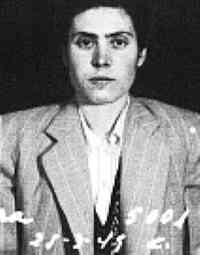
Sofia Ferreira was a prominent member of the Portuguese Communist Party (PCP). She was imprisoned for more than 13 years for her opposition to the Estado Novo regime.

Ivone Dias Lourenço was a Portuguese communist and an opponent of the Estado Novo regime in Portugal. She spent almost seven years as a political prisoner. A report of her imprisonment in a British newspaper led to her being indirectly connected with the foundation of the human rights organization Amnesty International.
Conceição Matos is a Portuguese communist who campaigned against the authoritarian rule of the Estado Novo regime in the 1960s. She was arrested and subjected to considerable torture.

Aida Magro was a Portuguese communist who was a campaigner against the authoritarian Estado Novo regime. She was held as a political prisoner for six years.

















